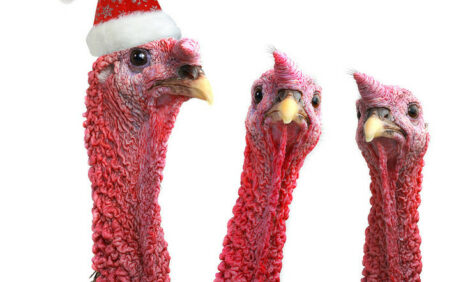



Africa's Industry Warned of Return of Bird Flu
GLOBAL - African poultry producers and traders ae being instructed on the importance of cross-border biosecurity to prevent the return of H5N1 bird flu.Three years ago the deadly H5N1 strain of the avian influenza virus landed in Africa, with the first cases reported in poultry farms in Nigeria. From there, it quickly spread across the continent, reducing demand for poultry and related products – and wrecking poultry industries. Voice of America (VOA) reports that eventually, it disappeared and dealers are trying to revive their businesses.
However, experts say the disease is still lurking in some African countries and could break out any time. They are taking steps to keep it from spreading across borders. Bird flu monitors say Africa is not entirely purged of the deadly H5N1 strain of the avian influenza virus that wreaked havoc on the continent's poultry industry for two years beginning in 2006.
The FAO's Emergency Centre for Transboundary Animal Disease [ECTAD] conducted a survey in northern Nigeria last year that revealed traces of the disease.
They fear another outbreak and are preparing poultry farmers and dealers to withstand another epidemic through early reporting, enhanced cross-border communication, and better farming and handling practices.
Dr Fallou Gueye is a poultry production specialist at the center's regional office in Bamako, Mali. He says to prevent another full-blown epidemic, the movements of infected live fowl must be monitored and poultry dealers must be geared up for prevention.
"We consider that there are some movements of poultry and poultry products, and we want to make sure that major players adopt the same strategies, the same behavior and that they're equally informed and exchange information," he said.
"No, there's no scare but there's a need to build the capacities of stakeholders so that they can take all the measures they can put in place to make sure that any disease – it can be avian influenza, but there're also other diseases – do not enter their bird flocks. We are also extending our activities to other transboundary animal diseases," he added.
The FAO's Emergency Center for Animal Disease is partnering with a project sponsored by USAID, STOP Avian Influenza, or STOP AI. They're holding regional workshops across the continent and encouraging poultry dealers and governments to be on the alert.
Rachel Tkachuk is an operations specialist for STOP AI. Recently, she organised one of the workshops in Cameroon. She says the current threats warrant permanent scrutiny.
"The STOP AI project is stepping out, geared towards educating people on biosecurity; how to avoid having an outbreak; and, if there's an outbreak, how to respond to it quickly and effectively. We want to be sure that folks understood the importance of biosecurity. We certainly got the impression that people are opening up and learning new things and discussing among themselves. Now they have contacts in other countries and here locally where they can reach out if they do have a cross-cultural question," she says.
Africa's first bird flu cases were detected on a commercial poultry farm in northern Nigeria in January 2006. Cameroon, which shares a 1,700-kilometre border with Nigeria, banned imports of poultry products from its neighbour and created contingency programmes. But within weeks, it became the fourth African country to be struck when strains of the virus were detected in ducks in the north.
The looming spectre of an epidemic sparked widespread panic as more cases were spotted in other parts of the country. Consumers quickly shunned fowls and eggs pushing hundreds of poultry farmers and traders out of business.
Francois Njonou is secretary general of the Interprofessional Poultry Association (IPAVIC) and also a poultry farmer in Cameroon's economic hub, Douala. He told VOA that production slumped from 650,000 chickens per week to less than 50,000, and that many poultry farmers are not able to resurrect their businesses.
Mr Njonou says inaccurate communication caused an obsession that wrecked the industry. He says losses evaluated by the Interprofessional Poultry Association stood at over US$6.3 million. The association signed a deal with the government last year to disburse funds to help farmers step up production but Mr Njonou says part of the money has still not been made available.
During the crisis many poultry farmers hid their livestock in their rooms. They said they did not get enough compensation for birds slaughtered by government agents. Others said bird flu, like AIDS, was another 'white man's invention' and increased their consumption of chicken and eggs auctioned in the streets.
Experts warn that governments on the continent are letting down their guard and concentrating on other issues like the global financial crisis. In the meantime there are elements in place that could trigger an epidemic, like porous borders, an unregulated chicken trade and a lack of financial resources, trained personnel and equipment to quickly detect outbreaks.
Experts say risks of contamination among chickens and eventually to humans are high. In Cameroon, almost every rural household keeps a few chickens for meat, eggs, fertiliser and income. People mix freely with the fowls they keep in backyard poultry.
Experts are calling on African governments to conduct permanent public awareness campaigns as migratory birds – which also spread the flu – enter the country. They are calling on those transporting birds to check with border police or customs, and encouraging sometimes reluctant officials to report cases early, concludes the VOA report.
Further Reading
| - | You can visit the Avian Flu page by clicking here. |









